- Category
- War in Ukraine
Russians Killing Each Other. Inside a Nation’s Cycle of Violence
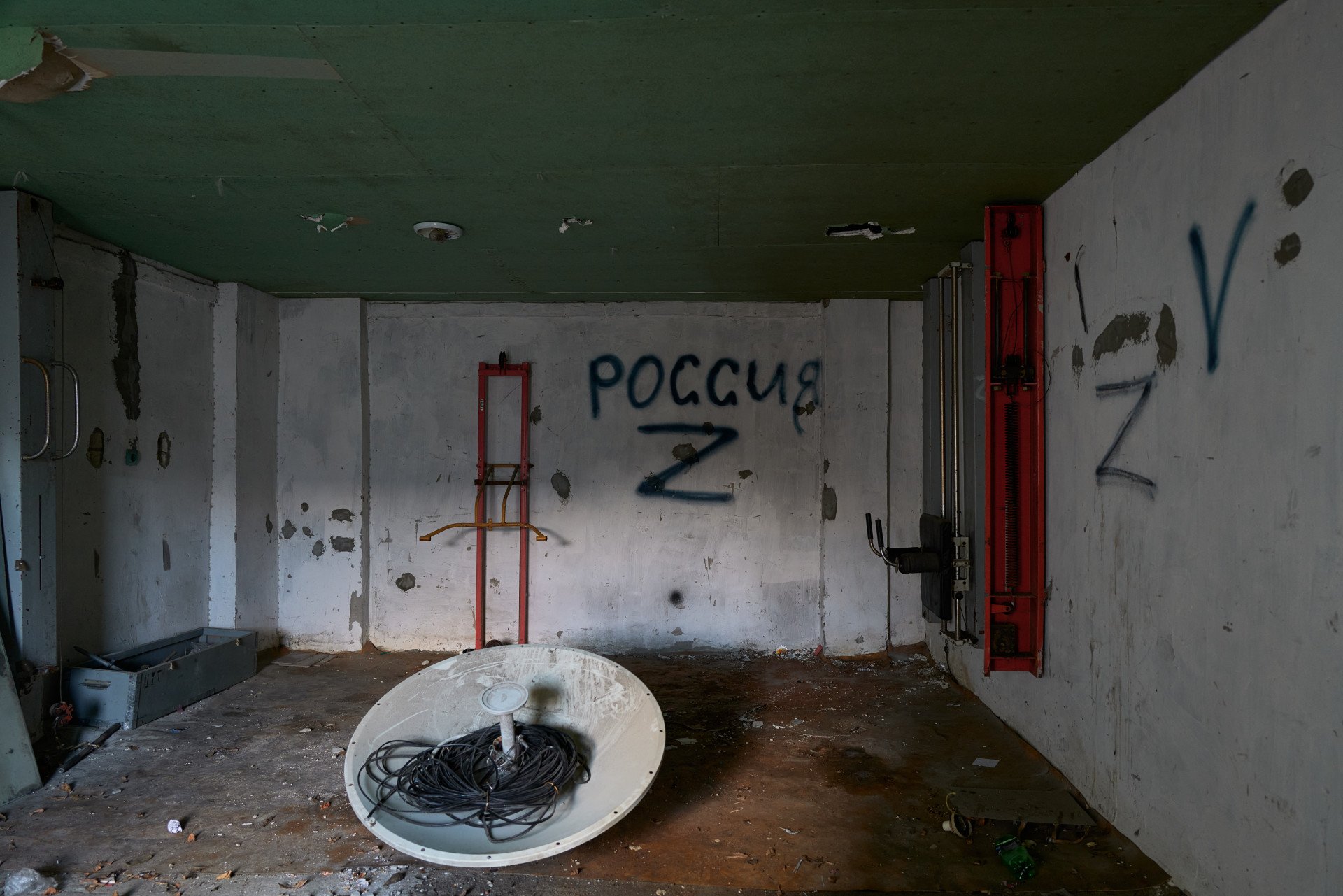
Russian soldiers killed and tortured their own comrades, as revealed in a recent investigation by Ukraine’s public broadcaster Suspilne. We look at what the investigation found, how violence is deeply entrenched within Russian society far beyond the frontlines, and how this has impacted their acceptance and normalization of human rights atrocities committed in Ukraine.
Russia continues to commit a litany of war crimes against Ukrainians, killing innocent civilians, kidnapping children, and destroying cities, homes, and villages at an unprecedented systematic and widespread scale.
In 2023, commanders of the Russian 6th Motorized Division gave orders to imprison and torture their military men, killing at least seven of them. This is not an isolated case, but it further cements evidence of already proven widespread violence committed by Russian forces in occupied areas of Ukraine, illustrating that their actions against Ukrainians are akin to how they treat their own.
Freedom of expression in Russia has deteriorated, government critics have faced arbitrary prosecution with lengthy prison terms, there have been violent attacks committed with impunity, torture and ill treatment in detention is widespread, and authorities have used extensive anti-terrorism laws against opposition and religious groups.
Post-Soviet Russia has a serious violence problem that has developed further than war crimes within military conflicts, but domestic violence too. In 2017 Russia decriminalized domestic violence against women and as the old well-known Russian proverb goes — “if he beats you, he loves you,” — examples of Russia’s historical tolerance to violence.
Societal violence in Russia is not an explanation for the systematic nature of war crimes that are committed by Russian forces but is a factor. We look at Suspilne’s recent findings and how Russia’s history with normalizing societal violence spills into the modern world, on and off the battlefield.
How Russian forces were blown up, shot, and burnt by their own
The 6th Motorized Division was formed when the full-scale invasion of Ukraine began in 2022. It includes several regiments formed mainly from conscripted soldiers. Colonel Marat Ospanov, call sign “Levant viper,” was appointed the division's commander.
In June 2023 soldiers began to complain about their “unbearable conditions” — “it was impossible to wash, to buy groceries, they had to fight with broken or insufficient equipment, and there was no evacuation from the battlefield.” The story became public and they changed regiment commander, but it was Ospanov, their division commander, who they claim was responsible for their poor treatment.
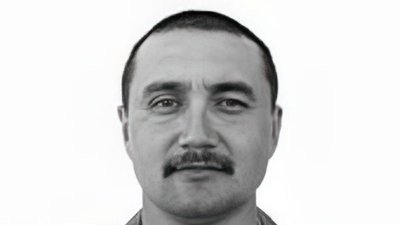
Ospanov ordered his subordinates to detain and illegally hold soldiers who “violated military discipline and refused to follow the orders, and also committed other misdemeanors”.
“Ospanov, for the purpose of intimidation, and wanting to achieve the strict execution of orders and military discipline in an illegal way, created an organized group, which included the subordinate military,” the document from the Investigative Committee of the Russian Federation obtained by Suspline stated.
Ospanov ordered his deputy commander Stanislav Ivanisov to organize the detention of the military. Another deputy commander, Evgeniy Malyshko with the call sign “Voronezh”, was appointed responsible for the killing of servicemen.
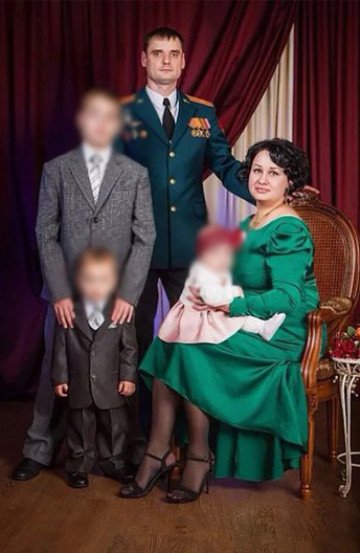
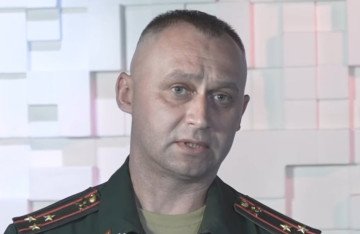
In total, 19 Russian military men were kept in different basements in the Luhansk region for different lengths of time, “without toilets, without conditions for maintaining hygiene, without sleeping places, with limited water and food”. 11 of them were released by military prosecutors when the investigation began, but according to Ospanov, eight detainees were “not subject to correction”.
All eight of them were subjected to torture and were beaten “with feet, fists, as well as with various objects and special tools on the face and body”. This, according to the Russian investigators, was the reason for the killing of the military — the command of the 6th Division tried to hide the illegal detention and beating.
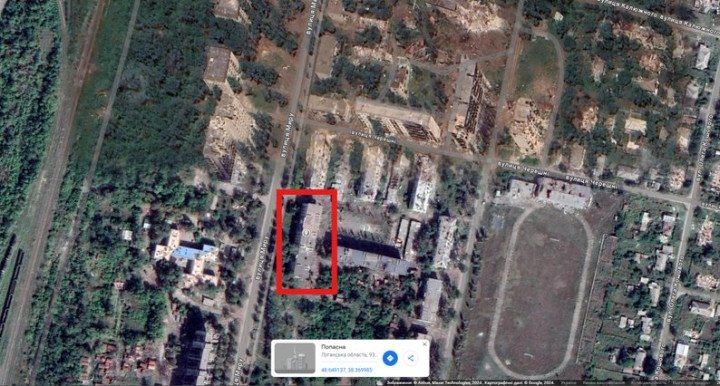
The Russian Ministry of Defence came to investigate the division. One of the eight, a medic, was sent to the frontline where he was wounded and taken to hospital. This likely saved him from death.
In early July, Ospanov ordered Malyshko and other subordinates from the 6th Division, also part of the investigation, to move the remaining seven detainees from the basements in Luhansk and to another in Donbas, where they detonated “no less than five F-1 hand anti-personnel defensive grenades”.
After the grenades detonated, Major Evgeniy Boriskin of the 6th Division, went into the basement to kill any survivors of the blasts “firing at least seven shots from a 6P9 silent pistol”, the investigation found.
The bodies and the vehicle in which they were transported, were burned.
Investigation outcomes
In April 2024, Suspilne obtained documents showing that a criminal case had been opened against the 6th Division. The document, signed by Sergey Shishov a main investigator from the military investigative department of the Russian Investigative Committee, shows that the investigation against the leadership of the 6th Motorized Division is being conducted under three articles of the Criminal Code of the Russian Federation; abuse of authority, illegal deprivation of liberty, and murder.
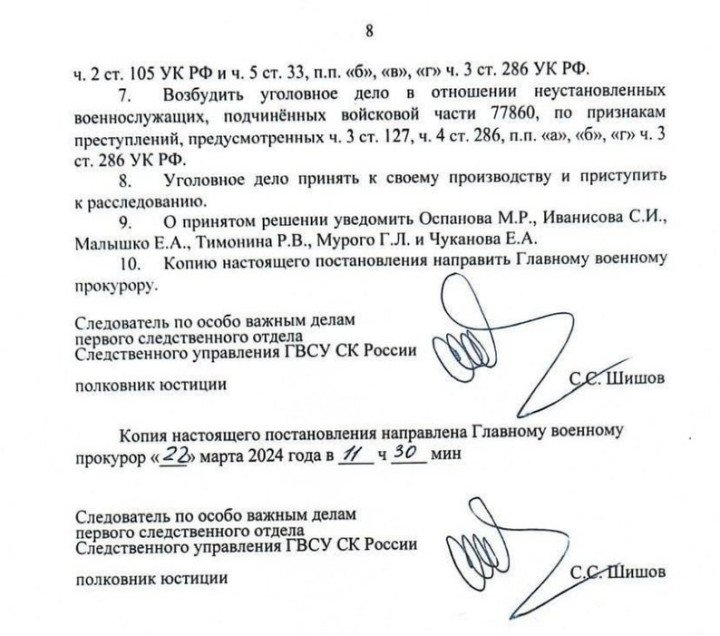
There have been no Russian media stories about the investigation against the 6th Division. Suspilne only found two mentions of the arrests of Ospanov and Malyshko in social media comments. They only found a handful of social media posts from the wives and family members of the killed military men that mention that they’re missing. Suspline spoke with the relatives of the killed Russian military, the wife of the general, who is considered the organizer of the crime, and those who managed to survive.
There are still many questions surrounding the investigation, and it’s likely the Kremlin will keep withholding information. Those who survived and their family members are not ready to discuss details as they claim that this puts them at further serious risk of harm.
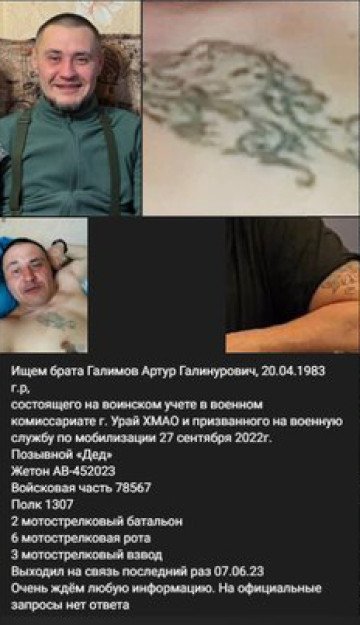
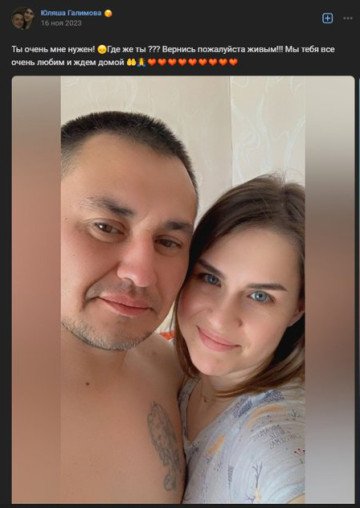
In 2022, Russian publication Astra investigated and found that mobilized Russians who refused to fight were kept in basements in order to “re-educate them.” They found the names of at least 60 people illegally detained in illegal prisons and or basements, they also found the locations of at least 7 of these “prisons” in Luhansk. After their publication, it was reported that these “prisons” were closed, however, the 2024 investigation uncovered by Suspilne shows that others are still active.
Russian forces set up so-called torture pits at their training grounds where “offenders” were put, if for example they attempted to resign from the army, were against fighting in Ukraine or were caught drinking, a Russian independent news outlet Vazhnye Istorii found in October 2023. According to one Russian soldier training at the ground, ‘the military police beat them and then put them in the pit, where they were kept for several days to a week. Food was brought once a day and no medical care was provided.’
Sergei, a mobilized Russian soldier told Vazhnye Istorii that he tried several times to resign and refuse to fight, but he received only threats from the command. “They said that they would beat us and put us in a ‘pit’ without food and water.” According to Sergei, one of his colleagues died at the training ground after visiting the pit.
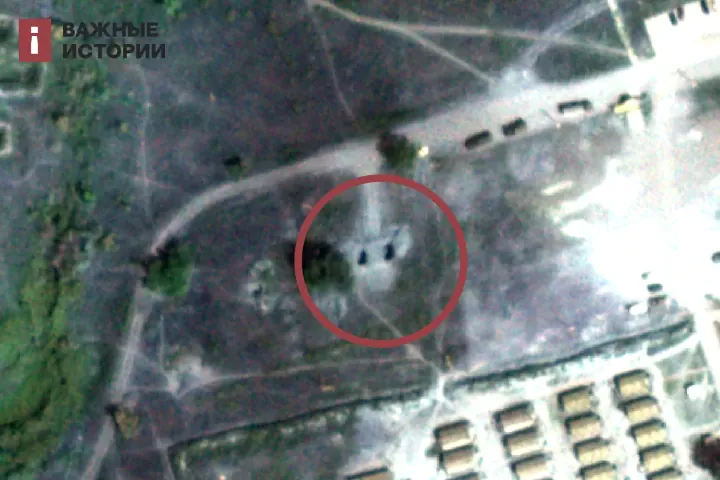
Analysts refute the idea that the pits seen on satellite imagery are landfill as their positioning contradicts the requirements of landfills, also refuting that they could be dugouts or trenches for training because they would have some camouflage, canopies, or have some obvious posts for shooting.
Many stories and videos of mistreatment by Russian forces against their own have circulated online, most too violent to show. Stories like those of Ilya Bakharev — who was attacked while he was sleeping and was killed with an ax and a wooden stool by his unit mates.
A Russian soldier talks about how he wants to leave the frontlines and no longer wants to fight, but if he leaves, he’ll be shot. The phone call was intercepted by Ukraine’s Security Services.
Russian soldier in Donetsk tells about serious losses in his battalion, including a killed commander, in this intercepted call published by SBU. He says he cannot leave due to the risk of being shot by his own people, and also describes being a witness of invaders raping women. pic.twitter.com/0zEiW1mOyN
— WarTranslated (Dmitri) (@wartranslated) September 20, 2022
“Russian military commanders are executing their own soldiers who refuse to follow orders — and threatening entire units with death if they try to retreat from fighting in Ukraine,” the Biden administration said labeling the threats as “barbaric.”
Violence against Russian people is not just prevalent on the frontlines but stretches further into their wider society.
Russian soldiers bringing violence home
Murder rates in Russia committed by military men have soared as those who have taken part in the war in Ukraine, return home. At least 107 people have died and at least 100 more have been seriously injured at the hands of Russian veterans Verstka media reported in April 2024 after studying media reports and court records.
However, they note that their findings “did not include, for example, the crime of the serviceman who shot his wife in Petrozavodsk, or the violation of traffic rules by the National Guard officer who hit a mother and child in Makhachkala with his Cadillac” as they could not independently find evidence that they participated in the war in Ukraine.
Courts do not publish all decisions on cases considered, and in their decisions they may not indicate "pardon" or the participation of the accused in the war in Ukraine.
Wagner member Vasily Vasyukov "during a quarrel that occurred against the background of hallucinations" stabbed his 77-year-old grandmother, who raised him. His sister told the court he “was her favorite grandson." According to Verstka, judging by known cases, the reason for such “sudden” conflicts could be personal insults to war participants, insults to their relatives, or unpleasant words about the “special operation,” Russian soldiers, or the Wagner PMC.
In the summer of 2022, Russian dictator Vladimir Putin considered mobilization, but instead, the Russian army began recruiting convicts serving time in prisons for crimes such as murder, violence, and pedophilia.
A tragic shooting took place on July 12th, 2024, in Ugolsky, a village in Russia’s Volgograd region. A convict, who recently had his sentence commuted after signing a contract with the Russian Army to fight in Ukraine, opened fire at a crowd of children with an assault rifle. One child was injured and was hospitalized, UNITED24 Media reported.
The modern Gulag — violence in the prison system
The “Gulag” was a system of concentration and correctional labor camps that began in 1919 during the Soviet Union but grew during Stalin's reign. Gulags imprisoned criminals, some were imprisoned for political reasons and some due to ethnicity or without any apparent cause at all. This treatment of prisoners has likely been extended to the modern Russian prison system, where torture and violence have been reported to become commonplace in police stations and the Federal Penitentiary Service system.
Any form of torture is prohibited in prisons by law — it’s considered gross misconduct thousands of cases where this law was violated were found to have very little persecution or repercussions. Torture seems to be an integral part of the Russian prison system.
Decriminalizing domestic violence
In 2017 Russia decriminalized any domestic violence that doesn’t require hospital treatment, or unless it’s the abusers at least second offense. Women who attempt to defend their rights are labeled as “feminists” which the Russian State Duma threatens banning under “extremist ideology contradicting traditional values.”
In one case a woman reported her husband for domestic violence but he couldn’t be arrested unless she was hospitalized. Only after he cut off her hands was he arrested for domestic violence. According to Diana Barsegyan — the deputy director of a Moscow-based NGO for domestic violence victims — “officially, there is no such (domestic violence) problem in Russia.”
Barsegyan said that lawyers often tell their victims to “wait until you get hit again. Then, perhaps, there will be criminal liability.” Two thirds of all women murdered in Russia from 2011 to 2019 were killed by their partners or relatives, a study from the Consortium of Women’s Non-governmental Associations (Wcons) reveals. The study claims that Russia is the “world leader in partner violence,” as the statistics were higher than anywhere else in the world at the time of the study.
Violence, a Russian value
Sergej Sumlenny, who was born and raised in Russia but gave up his Russian passport to live in Germany, now heads the European Resilience Initiative Center.
He spoke to reporters about his opinion on violence in Russia.
“Russian worldview is violence which is a top of values,” he said.
“Not wealth, not health, not fun, but violence itself is their basic value. The history of Russia ‘taught’ Russians that power is useless, money is useless, life is useless. Today you are Stalin's People's Commissar, and tomorrow you are ‘in the basement.’ Today you are an oligarch, and tomorrow you drink polonium in your tea.”
The dehumanization of Ukrainians
Russia has been found to commit barbaric human right atrocities across Ukraine, from torture and killings of Ukrainian prisoners of war, to illegally kidnapping children and indoctrinating them.
In March of 2023, an elderly Russian woman was filmed saying, “You need to kill them all (Ukrainians), and their children too. They’re a rot that has spread and they don’t like us. They’re neither brothers nor sisters to us.” Her words echo relentless Russian state propaganda and she is by no means the only person doing so.
“Dehumanization” as a process of denying humanity to a social group is a traditional element of propaganda used by colonial states against the oppressed. Dehumanizing human life has been a hallmark of Putin's war in Ukraine.
Psychologists have found that dehumanizing Ukraine, as done by Kremlin propaganda, desensitizes people to such killings and barbaric violence. Russian propaganda, even throughout the Soviet era, portrays Ukrainians as “lesser people” depriving them of human qualities.
Russia’s crackdown on dissent, targeting children
Russian authorities, in their crackdown on dissent, particularly those opposing Russia’s invasion of Ukraine, not only silence and imprison adults but target children as well.
The report “Your children will go to an orphanage”: Children and the crackdown on protest by Amnesty International found that Russia is denying children's right to freedom of expression. Children are being instrumentalized to put pressure on adults opposed to war, in particular by separating families, threatening to remove parental rights, and even placing children in institutions.
On October 5, 2022, 10-year-old Varvara (Varya) Galkina was interrogated by the police in Moscow over her WhatsApp profile picture, which featured an anime-style drawing supporting Ukraine. The police threatened her mother who was mandated to attend a “preventative” program for “parents improperly fulfilling their duties,” thereafter, her mother fled Russia with her two daughters fearing further persecution.
The combination of dehumanization, propaganda, and crackdown on dissent all contributes to the silence of those opposing war crimes and violence being waged against Ukrainian civilians. If children are repressed from having their own views from a young age, their subdued mentality continues into adulthood, continuing the cycle of the acceptance of violence.
Will a ‘peace treaty’ bring an end to violence?
Violence within Russia is one factor for those who commit atrocities in Ukraine, but it’s not an explanation for the systematic nature that it's being conducted. This is being deliberately driven by Moscow and the structure that they have in place.
Russia’s normalization and reliance on brutality, persecution and violence to assert control within its own society, and the widespread dehumanization propaganda in Ukraine has allowed Russian forces not only to commit inhumane acts against innocent Ukrainian lives — without a second thought — but has given the Kremlin the opportunity to conduct warfare at a cost that other Western societies could not accept.
Even if a “peace treaty” was signed in an attempt to bring the war in Ukraine to an end, Russia’s cultural factors and entrenched societal violence would not disappear. Therefore systematic violence conducted by Russia would continue, not just in Ukraine but worldwide. Only if Russia undergoes internal changes and overcomes its historical relationship with violence, might we see a change.
-46f6afa2f66d31ff3df8ea1a8f5524ec.jpg)
-35249c104385ca158fb62273fbd31476.jpg)


-554f0711f15a880af68b2550a739eee4.jpg)



-206008aed5f329e86c52788e3e423f23.jpg)